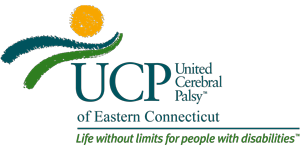[vc_row][vc_column width=”2/3″][vc_column_text]
Washington, D.C. September 20, 2016 – UCP releases state rankings on services for Americans with Disabilities
UNITED CEREBRAL PALSY RELEASES STATE RANKINGS ON SERVICES FOR AMERICANS WITH DISABILITIES
Connecticut drops down 10 places on the 2016 List, and 21 places in 11-year span of reporting.
Washington, D.C. September 20, 2016 – United Cerebral Palsy (UCP) released the 2016 Case for Inclusion today, an annual report and interactive website used to track state-by-state community living standards for Americans living with intellectual and developmental disabilities (ID/DD).
The Case for Inclusion examines data and outcomes for all 50 states and the District of Columbia (DC), ranking each on a set of key indicators, including how people with disabilities live and participate in their communities, if they are satisfied with their lives, and how easily the services and supports they need are accessed. By taking these factors into account, UCP is able to publish this comprehensive analysis of each state’s progress or failures in providing critical services to individuals living with disabilities.
In addition to rankings, the report digs deeper into two critical issues facing people with disabilities and their families: waiting lists for services as well as support for the transition from high school into an adult life in the community. Two case studies examine how states are approaching those issues.
Since 2006, the rankings have enabled families, advocates, the media and policymakers to measure each state’s progress — or lack of improvement — and gain insight into how the highest-ranking states are achieving their success. To enhance the usability of the report, UCP publishes tables of the data from which the report was compiled on an interactive website where visitors can compare and contrast results among selected states.
“Ultimately, the goal of this research is to promote inclusion and enhance the quality of life for all Americans,” said Richard Forkosh, Interim President/CEO of United Cerebral Palsy. “UCP is committed to shining a light on how well states are actually serving people with disabilities and, by extension, their families and communities. Also, we want to underscore the national context for this data so that stakeholders can use this information to drive progress.”
To download and read the entire Case for Inclusion report, or explore the data tables, visit cfi.ucp.org.
Connecticut dropped from 17th position in last year’s overall rankings to 27th this year. At least two causes for this change can be attributed to:
Ranked 39th among states in terms of promoting independence. This drop is a reflection of the increase in the number of other states that have eliminated institutions, therefore giving them a higher score when looking at how many people served in home-like settings versus institutions. Because CT still has institutions, CT’s ranking in this area dropped.
Connecticut ranked 22nd in keeping families together. Between 2004 and 2013 the actual number of families served by family support services (who were provided cash and non-cash subsidies) went from 8,800 to 3,100, a drop of 65%. These subsidies allowed for families to obtain respite funding; transportation funding and in-home caregiver supports which enable other family members to work.
On a more positive note, Connecticut is one of just 10 states that has at least 33% of persons with ID/DD working in employment. However, CT’s actual performance remains flat.
And there are other significant opportunities to improve the quality of life of Connecticut residents with disabilities. As UCP of Eastern Connecticut’s Executive Director, Jennifer Keatley, explains “With adequate support from the state, we can serve more individuals and families, while saving state dollars. The programs and services we provide are a vital part of our cities and towns: allowing individuals and families to live productive lives in the community, enhancing our quality of life and contributing to making Connecticut a great place to live and raise a family.”
Considering the trends in the report, Keatley said: “While we are pleased by recent actions by the state to move individuals from state funded programs to private providers as a cost cutting measure, we also need to continue to move individuals to more integrated, family-like settings and eliminate institutional living. We are also encouraged by the state of CT becoming part of the Employment First State Leadership Mentoring Program, and look forward to moving away from Group Supported employment settings – which often pay below minimum wage rates — to individual employment with competitive wages and benefits.”
About United Cerebral Palsy
United Cerebral Palsy (UCP) educates, advocates and provides support services through an affiliate network to ensure a life without limits for people with a spectrum of disabilities. Together with nearly 70 affiliates, UCP has a mission to advance the independence, productivity and full citizenship of people with disabilities by supporting more than 176,000 children and adults every day—one person at a time, one family at a time. UCP works to enact real change—to revolutionize care, raise standards of living and create opportunities—impacting the lives of millions living with disabilities. For more than 60 years, UCP has worked to ensure the inclusion of individuals with disabilities in every facet of society. Together, with parents and caregivers, UCP will continue to push for the social, legal and technological changes that increase accessibility and independence, allowing people with disabilities to dream their own dreams, for the next 60 years, and beyond. For more information, please visit www.ucp.org.
For Inquiries: Kaitlyn Meuser, Kmeuser@ucp.org, 202-973-7185
[/vc_column_text][/vc_column][vc_column width=”1/3″][/vc_column][/vc_row]
